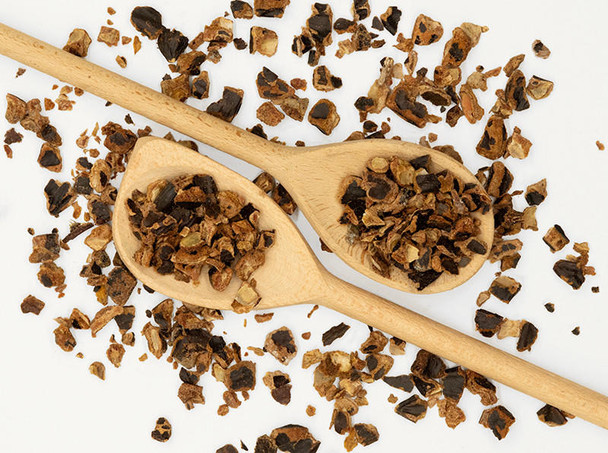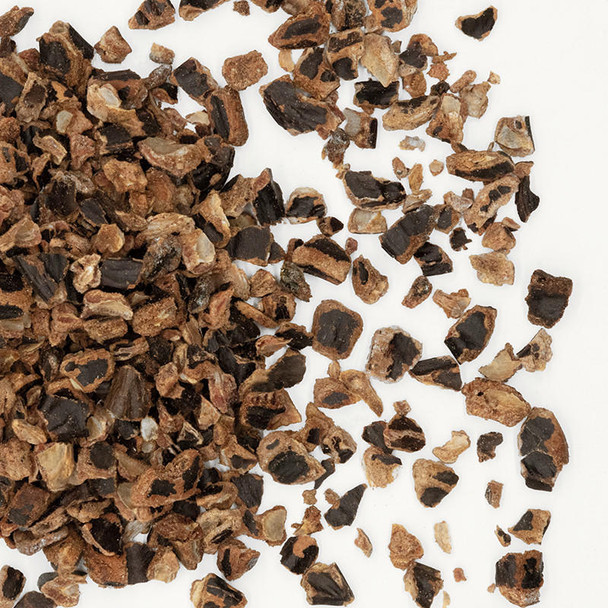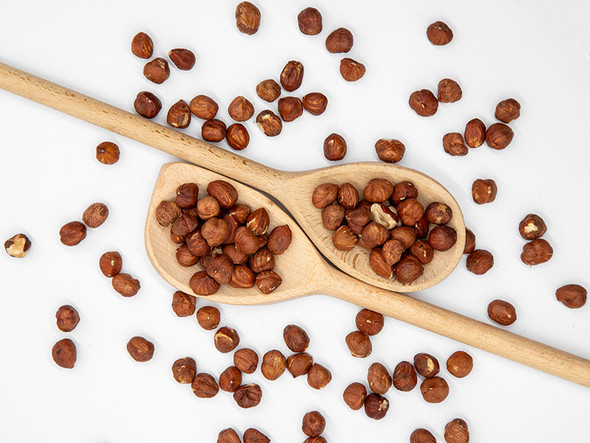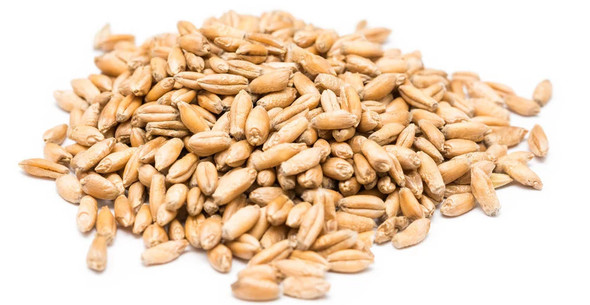Description
Locust Beans Food for Birds and Small Animals: A Nutritious Treat
In the realm of aviary sustenance, Locust Beans – or Carob Pods – emerge as an exemplary source of nutrition, offering a medley of essential nutrients that benefit birds exponentially - a truth too often overlooked.
Unveiling Locust Beans for Birds
Locust Beans, the fruit of the Carob tree, display a sweet and palatable profile suitable for many avian species. These beans serve not merely as a treat but as a substantial source of nutrition.
High in protein, vitamins, such as A and B, minerals like calcium and phosphorus, and rich in fibre, Locust Beans provide an excellent supplement to a bird's diet. While they are energy-dense, they remain low in fat and possess no theobromine, thus ensuring a healthy, balanced diet for birds.
The inclusion of Locust Beans in avian diets supports digestion, promotes feather health, and enhances the overall well-being of birds.
Carob Pods are devoid of theobromine, making them a safe treat for birds.
Nutritional Value of Legumes for Wildlife
Legumes, such as locust beans or carob pods, present a significant source of nutrition for wildlife. The pods harbor a symphony of essential nutrients including proteins, which are pivotal for growth and repair in birds and small animals. They are also an important source of dietary fibre, promoting healthy digestion. Moreover, they contain vital minerals like calcium and phosphorus, as well as a tapestry of vitamins, supporting a range of physiological functions from bone health to energy metabolism. As such, when introduced thoughtfully into the diet of wildlife, legumes can contribute to the nourishment and overall vitality of various species.
Locust beans contain both soluble and insoluble fibers, beneficial for optimal digestive health
The Nutritional Profile
Locust Beans possess a comprehensive spectrum of vital nutrients, prominently featuring robust protein content and essential vitamins. They deliver a balanced blend, ideal for avian nourishment.
Intrinsically rich in dietary fibre and vital minerals such as calcium and phosphorus, these beans are a cornerstone of avian wellness. Their nutritional essence lies in the symbiosis of nourishment and palatability.
Fulfilling the stringent dietary requirements of various bird species, Locust Beans also contain a suite of B-vitamins aiding in metabolic processes. They are an advantageous addition, complementing traditional seed-based diets with their richness in nutrients.
Why Carob Beats Traditional Treats
Carob, a superb alternative to chocolate for humans, also transcends traditional bird treats in safety and nutritional value. It is inherently devoid of caffeine and theobromine, eliminating risks associated with chocolate toxicity.
Unlike some seeds and nuts, carob is naturally low in fat. This ensures birds maintain a healthy weight, a crucial aspect of their overall health.
Carob pods are teeming with palatable natural sugars balanced with high dietary fiber, offering birds a treat that satisfies their taste without overwhelming their delicate digestive systems. Moreover, their innate vitamins and minerals support vibrant plumage and robust health.
The antioxidant properties of carob make it not only a reward but also a protector, actively contributing to a bird's defence against oxidative stress. Its exemplary nutrient profile caters to the complex needs of avian metabolism, with a naturally sweet allure that’s irresponsibly indulgent yet decidedly wholesome. It is a treat that enriches, supports, and enlivens without compromising their delicate physiology.
Serving Carob to Feathered Friends
When introducing carob to your avian companions, it's paramount to do so judiciously and with regard to recommended serving sizes, considering their species-specific dietary requirements. Ideal as an occasional treat, carob pieces should be offered in moderation due to their rich sugar content. Ensure that the carob is pure, unsweetened, and devoid of any additives or chocolate. It may be provided in its raw pod form, or finely grated atop their regular feed, serving not only as a nutritional enhancement but also as a catalyst for behavioural enrichment, stimulating their natural foraging instincts.
Portion Sizes and Frequency
Properly assessing portion sizes is imperative to maintain a balanced avian diet.
- Small birds such as finches or budgerigars: a few small pieces twice a week.
- Medium birds like cockatiels: a small pod or equivalent in pieces thrice a week.
- Large birds such as African greys or macaws: half to one full pod every other day.
Overfeeding can lead to obesity and nutritional imbalances, hence moderation is key.
Health Perks for Avian Companions
Locust beans are rich in nutrients vital for avian health, including protein, vitamins, and minerals. These pods serve as more than mere diversions; they offer substantive dietary benefits.
Significantly, locust beans possess low-fat content and high fiber, pertinent for digestive function. They can aid metabolism and promote a healthy gut, contributing to the overall well-being of birds. Their natural sugars also provide a wholesome energy boost.
These 'chocolate substitute' treats are free of caffeine and theobromine, ensuring they're safe for avian consumption.
Support for Digestive Wellness
Locust beans are a fibrous treasure trove.Their considerable fiber content helps regulate avian bowel movements. Benefitting from both soluble and insoluble fibers, these beans improve the digestion process, reducing the risk of gastrointestinal issues such as constipation or diarrhea. Consistently, fiber is paramount to the maintenance of a healthy digestive tract in birds.
Fiber fosters a thriving gut microbiota.High-fiber diets like those inclusive of locust beans - rich in complex carbohydrates - encourage the growth of beneficial gut microbes. These intestinal flora play a critical role in nutrient absorption, digestive health, and bolstering the immune system.
A prebiotic effect promotes gut health.The indigestible elements of locust beans act as prebiotics, stimulating growth of advantageous bacteria within the avian gut. This harmonious relationship is pivotal for maintaining a balanced intestinal ecosystem and augmenting digestive efficiency.
Incorporate locust beans responsibly for best results.Properly integrating locust beans into a bird’s diet will yield the most beneficial outcomes when careful attention is paid to quantities and frequency. Adhering to suggested serving sizes ensures birds tap into the digestive advantages without risking dietary excess.
Feather and Bone Health Benefits
Locust beans provide not only a robust source of protein, indispensable for feather regeneration, but are also replete with amino acids. These micro-nutrients are critical for the synthesis of keratin, the primary structural protein found in feathers.
Rich in calcium, they fortify bones.Sufficient calcium from carob pods ensures sturdiness and durability of avian skeletal structures, preventing malformations and promoting robustness in flight.
Vitamins contribute to cell repair and growth.Vital for regeneration, vitamins from locust beans play a key role in maintaining feather quality and bone density, utilising their antioxidant properties for cellular repair and proliferation.
Minerals function in metabolic processes.An array of crucial minerals found in these legumes contribute to essential metabolic activities. These underpin the health of feathers and bones, potentially averting a range of nutritional defections.
Trace elements from locust beans are indispensable.Incorporating trace minerals like zinc, important for healthy feather development, ensures optimal bird health. Such micro-nutrients aid in the physiological processes vital to sustaining feather integrity and bone strength throughout a bird's lifecycle.
A sustained supply meets growth demands.Ultimately, the goal is to ensure your bird's diet meets their developmental needs. Kennedy Wild's Locust beans provide a natural source of vital nutrients to maintain feather health and bone integrity.
Signs of Overindulgence
While nutritious, locust beans must be fed in moderation to prevent overindulgence.
- Changes in Droppings: An immediate indicator, with increased droppings size or changes in consistency or color.
- Weight Gain: Persistent consumption of locust beans can lead to noticeable weight increase.
- Eating Habits: A reluctance to consume their regular mix, showing a preference for carob pods.
- Behavioural Shifts: These may include lethargy or decreased interest in normal activities.
Overindulgence can have long-term health implications for your birds.
Balancing with Other Food Sources
Locust beans, or carob pods, must complement, rather than replace, other dietary elements. It’s vital to blend these pods carefully with a diverse selection of food sources to avoid nutritional imbalances.
Exclusively feeding locust beans is not recommended for avian or mammalian diets. Over-reliance may lead to nutritional deficiencies.
Indeed, while these pods contribute valuable fibre and sweetness, they lack the protein content (sometimes referred to as 'essential amino acids') required for comprehensive diets.
Thus, feeding routines should incorporate insects, seeds, or commercial feed to create a balanced nutritional spectrum tailored to each species' needs.
Ensure pods form only one component of a varied diet, pairing with fruit, nuts, and other safe plant matter to provide a robust foundation for health and wellbeing.
Ultimately, carob should serve as a supplement rather than a staple within your charge's diet. Regularly evaluate the dietary mix to ensure ongoing nutritional adequacy and adjust as necessary.
We recommend our following premium mixes to provide balanced diet to your birds and small animals :-
- HIGH ENERGY SQUIRREL MIX
- PREMIUM RABBIT MIX
- ROBIN SPECIAL
- BLACKBIRD MIX
- PREMIUM BUDGIE MIX
- HEDGEHOG MIX
- BADGER MIX
CONSUMPTION GUIDELINE: Please note that our dried diced Pineapple are intended for wildlife and domestic animal consumption only. They are not suitable for human consumption.
PRICE & DELIVERY: Price includes VAT where applicable.
UK wide Next Day Delivery, Free for orders over eligible value. Please see our Shipping costs page for more details on shipping zone & minimum order value for Free delivery.
STORAGE: Store in cool & dry place, away from direct sunlight.










